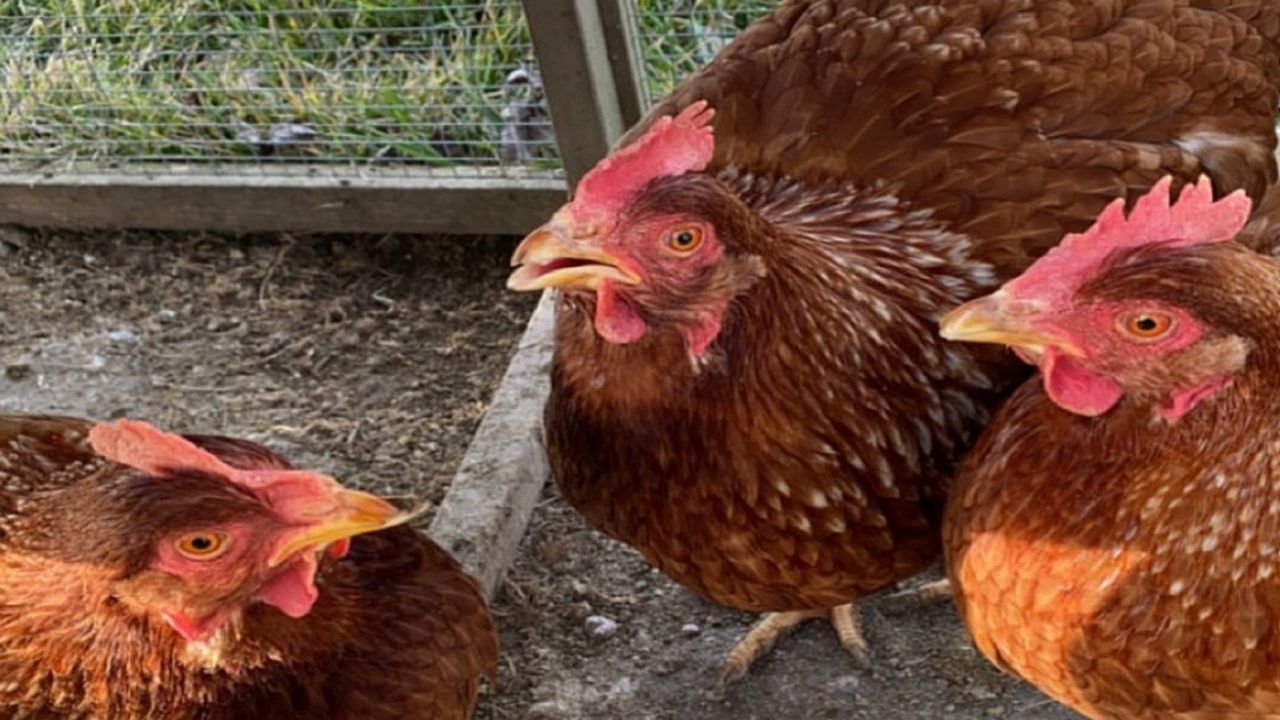CUYAHOGA FALLS, Ohio — Scroll through the Cuyahoga Falls community pages on social media, and you’ll likely come across posts about keeping backyard chickens.
Some posts are communiques about chickens on the loose. Other commentators are witty, recommending keeping the boneless kind as “they're much easier to catch if the gate is left open…”
Unsurprisingly, with skyrocketing food prices, many residents are asking questions about local regulations, wondering if chickens are allowed within city limits.
Those posts garner answers ranging from “nope” to “dependent upon your lot size.” Regulations on keeping chickens in the Falls could be about to change.
On Tuesday night, at the request of Councilwoman Mary Nichols-Rhodes, Ward 4, and Councilwoman Susan Spinner, Ward 2, text amendments to zoning code language will come before the Cuyahoga Falls Planning Commission.
The amended language reflects a broadening of the types of zoning districts in which the birds can be kept.
Currently, only residences in the Falls zoned Rural Residential (RR) and X National Park Districts (NP-1), which generally have larger lots than properties in the rest of the city, are allowed to keep chickens, according to the zoning code.
The amended language would expand the code to include R-2, R-3 and R-4 where residents could keep four chickens, while those residing in areas zoned R-1 could keep 10 chickens.
Residents in neither of the expanded areas could keep roosters.
Falls resident, beekeeper and sustainable living enthusiast Christin Boozer has been advocating for backyard birds in the Falls for several years, she said.
When she bought her Ward 2 home about four years ago, she set up raised garden beds and started keeping bees, aiming for sustainable living.
She wanted chickens to produce eggs, of course, and to produce fertilizer for her gardens.
“Chicken poop fertilizer,” she said. “I have to buy it — that's the missing link in the urban setting.”
Her Facebook page, Urban Chickens in Cuyahoga Falls, Ohio, has more than 200 followers, and attempts to educate residents about the benefits of keeping backyard chickens.
She also launched a petition to reach others keen to keep urban chickens and gardens and exercise urban homesteading.
In meeting like-minded others, Boozer said heard lots of stories about sustainable practices, as well as a few heartbreaking ones. Those were from people who found they had no recourse but to get rid of their chickens after their neighbors complained.
Boozer said she heard from so many people during the pandemic, she thought things might have changed
“That really brought people out of the woodwork,” she said. “But do they still feel the same two and a half years later, when we kind of forget? I really did feel they would kind of go, ‘Hey, this system that we have here is pretty fragile.’ Because we got a glimpse into that.”
The draft language the Planning Commission will consider for keeping hens includes several conditions:
- chickens can’t be kept in front yards or corner side-yards, only backyards
- the birds must be protected by ventilated, predator-proof coops or shelters
- the shelters have to be set back 10 feet from all property lines
- the shelters must be easily accessed for cleaning
- the structures have to allow adequate freedom of movement for the animals
- a container must be provided for the animal’s feed
Additionally, the coops the birds would live in would have to meet certain building standards and require approval from the city’s planning department, according to the draft text.
At Tuesday’s meeting, Boozer said she will weigh in during the public input time.
“Cuyahoga Falls — I love it. We're progressive, you know, with what we're doing with Front Street, and I feel like we're forward thinking, but then there's still a large population that is like pearl clutching,” she said.
She said she'll also be ready to tackle a myth often uttered about urban chickens — they lower property values. After conducting research and finding no evidence of it, Boozer consulted a realtor who told her the birds have no impact on property values.
“These hens just kind of cling to each other and eat bugs,” she said. “They're going to be enclosed and we're not talking about cockfights. We're not talking about factory farming, we're not talking about free ranging into your neighbor's yard.”
The Planning Commission meeting is just one step in a process that will determine whether the amendments become part of the city zoning code, said Community Development Director Diana Colavecchio. The group’s decision will be a recommendation that could either go before City Council as is, with amendments, or not at all.



